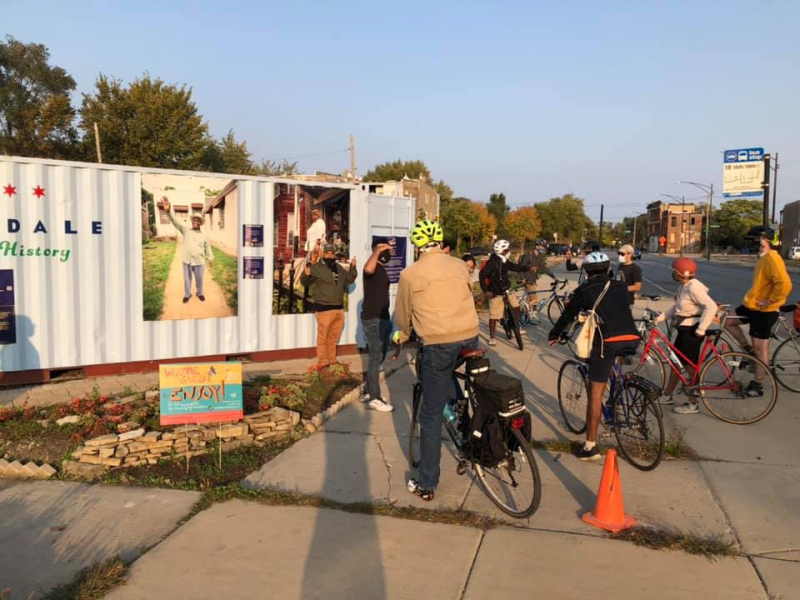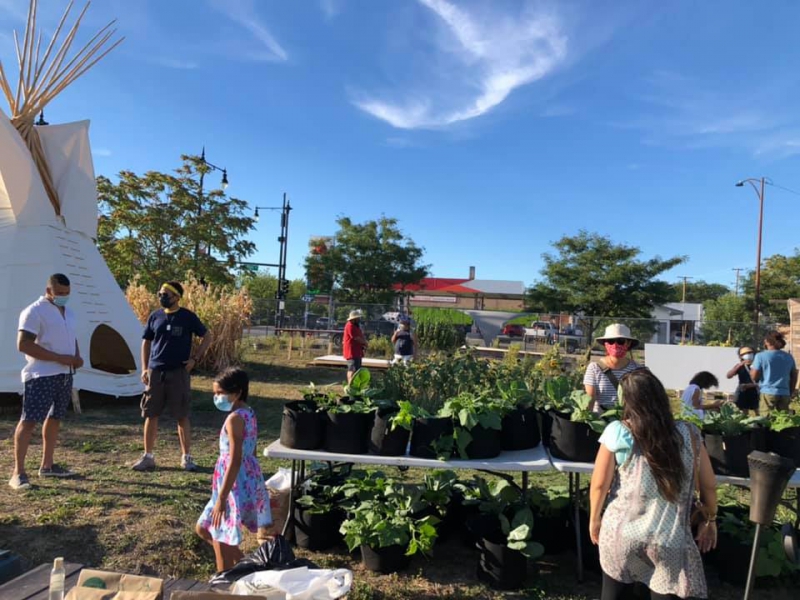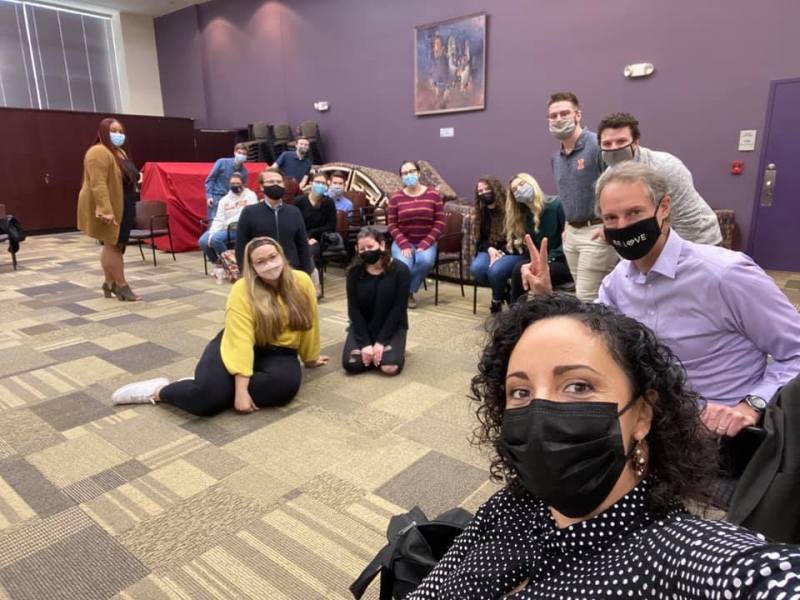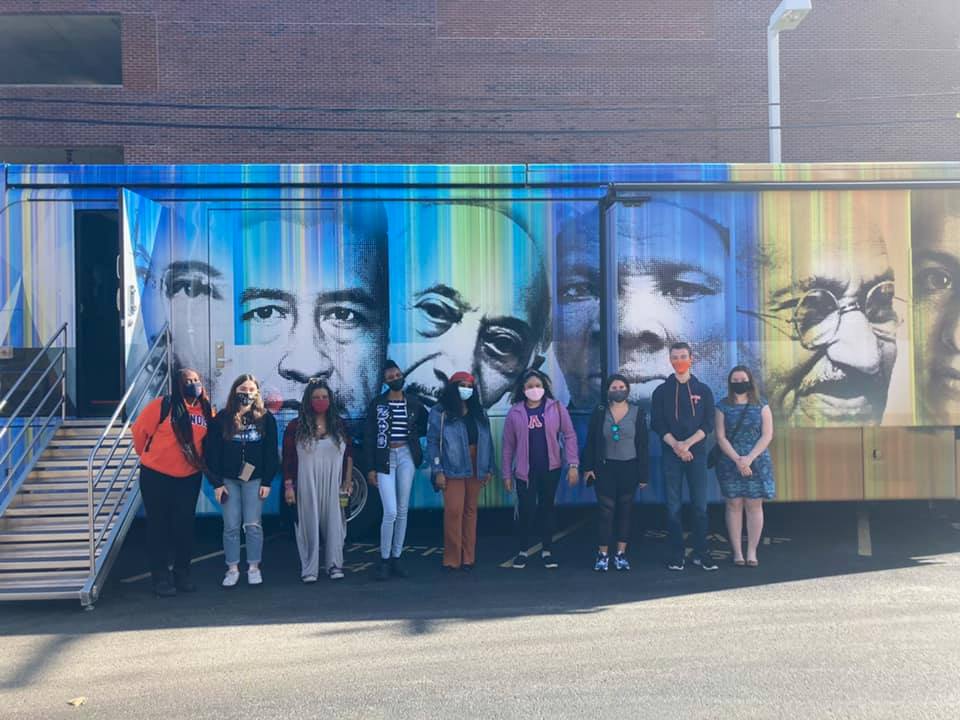Did you catch the Mobile Museum of Tolerance (MMOT) that was recently on the U of I campus?
Over the course of the day, the campus community got the opportunity to explore and participate in workshops involving Civil Rights activism, combating anti-Semitism, and learning of the individual power that one holds to create change — all from inside a bus.
It’s the first of its kind in the United States, modeled after the Friends of Simon Wiesenthal Center’s “Tour for Humanity” bus. The purpose of MMOT is to, “inspire people of all ages and backgrounds, empowering them to raise their voices and combat anti-Semitism, bullying, racism, hate, and intolerance and to promote human dignity.”
Recently, several incidents and displays of anti-Semitism have been demonstrated and are increasingly appearing on-campus at The University of Illinois Urbana-Champaign. A number of offenses have been recorded — including the defacement of religious ornaments and depictions of swastikas drawn on campus property.
According to the Chicago Tribune, these occurrences have prompted students to file a claim to the US Department of Education in October 2020, stating that the university failed to adequately respond to and protect their Jewish students from harassment. An investigation is being conducted by the US Department of Education.
Involved in bringing the mobile museum to campus were Illini Hillel student organization, student government senators, and interns from a group called UIUC Organic Oneness. The group is part of a larger organization based in Chicago founded by Syda Segovia Taylor, and is relatively new to U of I. Taylor is a Chicago native who has worked in nonprofits and supported underserved communities for over 25 years.
She formed Organic Oneness, with the mission being, “a grassroots, social justice organization that co-creates with communities to mobilize systemic change, healing, and wellness, foregrounding Black, Indigenous, and People of Color (BIPOC).”
Through forming her own non-profit, she was better able to bring together her vast connections and knowledge toward the betterment of communities. The organization spends its time connecting with community members, elected officials, and different city agencies to tackle major issues like racism, economic inequality, and environmentalism. Taylor explains, “For each situation, we assess what tools and skill sets we have, whatever is lacking, we bring to the table, such as finding funders and volunteers. We’re responding to what the world needs.”

Bike tour of the Chicago Race Riot of 1919, hosted during summer 2019 in partnership with Streets Calling. Photo from Organic Oneness Facebook page.
The 10 members that make up the board at Organic Oneness are individuals that Taylor has personally worked with on previous projects. Each member brings different elements to the table, each specializing in their own area of expertise, and ensures that the organization’s efforts and decisions are inclusive and interconnected. These tools and skills that the group possess range from preventing burn-out and fatigue, to helping build racial and oppression understanding, and leveraging relationships.

First Nations Community Garden, teaching the importance of outdoor healing spaces and organizing in Native urban communities. Photo from Organic Oneness Facebook page.
The organization’s focus on cultivating a “fortress of wellness” is a mission that Taylor and her staff feel strongly about- trying to offer a different outlook on service and giving back.
Taylor was raised in a service-focused household, and she used to take the ‘willing to be helpful, help whoever needs help’ mentality to the extreme- which is not an uncommon, toxic mentality for activists. Then, at the age of 32, she was diagnosed with cancer. The experience forced Taylor to slow down and listen to her body. After managing chemotherapy, radiation, and over 20 surgeries, Taylor knew she had to make drastic, healthier changes in her life. “You will burn your light out trying to be everything to others, she said. “You need to care for yourself as much as you care for others.”
Taylor built the foundation of Organic Oneness on the beliefs of the Baha’i faith- teachings that stress that achieving world peace is possible through the establishment of unity, justice, and equality. The events of the organization are not faith-based, but bring people together through the shared interest of bringing people together for good, spanning across many faiths and backgrounds.

Photo from Organic Oneness UIUC Facebook page.
As a former member of the Jewish faith, the mission to bring the mobile museum to U of I was personal to Taylor. “You never stop growing and evolving. Your life’s duration is important and should be used to continue moving society forward. The entire community needs to be at the table,” said Taylor.
To learn more about Organic Oneness and their mission, visit their site and sign up for their newsletter.
Top photo from Organic Oneness UIUC Facebook page.








